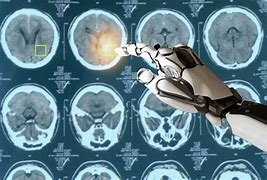In Elon Musk’s world, AI is the new MD. The X CEO is encouraging users to upload their medical test results—such as CT and bone scans—to the platform so that Grok, X’s artificial intelligence chatbot, can learn how to interpret them efficiently.

“Try submitting x-ray, PET, MRI or other medical images to Grok for analysis,” Musk wrote on X last month. “This is still early stage, but it is already quite accurate and will become extremely good. Let us know where Grok gets it right or needs work.”

It turns out, Grok needs work.
The AI successfully analyzed blood test results and identified breast cancer, according to some users. But it also grossly misinterpreted other pieces of information, according to physicians who responded to Musk’s post. In one instance, Grok mistook a “textbook case” of tuberculosis for a herniated disk or spinal stenosis. In another, the bot mistook a mammogram of a benign breast cyst for an image of testicles.
Musk has been interested in the relationship between health care and AI for years, launching the brain-chip startup Neuralink in 2022. The company successfully implanted an electrode that allows a user to move a computer mouse with their mind, Musk claimed in February. And xAI, Musk’s tech startup that helped launch Grok, announced in May it had raised a $6 billion investment funding round, giving Musk plenty of capital to invest in health care technologies, though it’s uncertain how Grok will be further developed to address medical needs.

“We know they have the technical capability,” Dr. Laura Heacock, associate professor at the New York University Langone Health Department of Radiology, wrote on X. “Whether or not they want to put in the time, data and [graphics processing units] to include medical imaging is up to them. For now, non-generative AI methods continue to outperform in medical imaging.”
